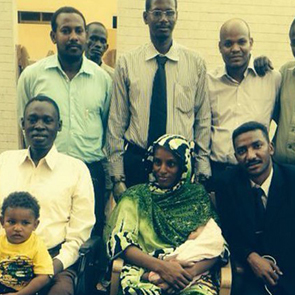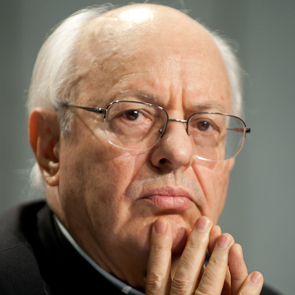Catholics failing to follow Church teaching should be treated with mercy but at the same time need to be better educated on its content, a new document released today in preparation for October’s Synod on the family states.
The Instrumentum Laboris – a working document for the synod of bishops – has collated the responses from bishops’ conferences from across the world to questions on issues such as communion for the divorced and remarried and same-sex couples.
The lengthy document, released by the Vatican, strongly reinforces Church teaching on marriage and sexuality.
Hopes have been high that the forthcoming synod could lead to a development in Church teaching including, for example, on allowing communion for the divorced and remarried. But this document, which will provide the basis of the bishops’ discussions when they meet, suggests that while the approach will be pastoral Church teaching will not necessarily shift and instead needs to be better articulated.
It seems particularly concerned that the family is coming under pressure from a variety of angles. In the West these are listed as hedonism, relativism, individualism, transiency and the desire for immediate gratification while in Africa and parts of Asia polygamy and divorce on the grounds of a woman being unable to have children are cited. The document also makes frequent critical references to “gender theory”, the idea that gender is a social construct, as another threat to marriage.
At the same time the document shows a sensitivity to financial constraints – including a lack of suitable housing – that lead younger couples to delay getting married and calls on the Church to develop pastoral programmes to help those in irregular marriages and to welcome the children of gay couples.
It says that knowledge of the Church’s teaching on marriage is lacking among Catholics and that some clergy feel unprepared to explain teaching on sexuality while others express indifference.
This ignorance is especially evident when it comes to natural law, the philosophical underpinning of the Church’s teaching on marriage and sexuality. Very few Catholics demonstrated an understanding of the concept with some believing that “natural” meant “what comes naturally.” It also pointed out that in the West evolution, biology and neuroscience argue that natural law is “not scientific.”
On the following hot-button issues in the Church, the document had this to say:
Communion for divorced and remarried
A number of divorced and remarried couples are simply unaware of their irregular union, the document says, while those who are aware “feel frustrated and marginalised” due to the fact they are unable to receive communion.
“Some wonder why other sins can be forgiven and not theirs,” it says. “Others cannot see how religious and priests can receive a dispensation from their vows and priestly obligations so they can marry, while divorced and remarried persons are unable to receive communion.”
But the document states that these questions “highlight the necessity of providing suitable formation and information on the matter.”
At the same time, however, the tone is pastoral with a request from local hierarchies for the Church to “more widely exercise mercy, clemency and indulgence towards new unions.”
It goes on: “With great mercy, the Church is called to find forms of “accompaniment” which can support her children on the path of reconciliation. With patience and understanding, she must explain to these people that their not being able to celebrate the sacraments does not mean that they are excluded from the Christian life and a relationship with God.” Furthermore, the document implied a consensus among bishops to make the annulment process easier and more efficient.
Same-sex couples
There was no hint of a shift on accepting gay civil unions with a quote used from a 2003 document explaining church opposition to this written by the then Cardinal Joseph Ratzinger when he was Prefect of the Congregation for the Doctrine of the Faith.
Bishops’ conferences, however, say they are trying to find a “respectful, non judgemental” attitude to gay couples although the document points out there is no consensus. It stresses that gay couples should be given support “in the same manner as for any other couple” when seeking baptism for their child. The offspring of homosexuals must also be greeted with the same “tenderness and concern which is given to other children.”
Contraception
The document states that the vast majority are unaware of the “positive aspects” of Humanae Vitae - Pope Paul VI’s encyclical reiterating the ban on artificial contraception.
“A vast majority of responses emphasise how the moral evaluation of the different methods of birth control is commonly perceived today as an intrusion in the intimate life of the couple and an encroachment of the autonomy of conscience,” it explains.
It also says that couples do not generally consider the use of contraception to be a sin and a matter for confession (the opposite, however, is believed about abortion).
Humanae Vitae, the document concludes, must be made better known in marriage preparation courses and this should be done in collaboration with those who are medically trained.
Finally, as a sign of hope, the document points to the continued desire among young people to marry and start a family.
“This is a true sign of the times which should be seen as an opportunity for pastoral ministry,” it states.
The Extraordinary General Assembly of the Synod of Bishops on the theme of “Pastoral Challenges of the Family in the Context of Evangelisation” takes place on 5-19 October and will be attended by presidents of episcopal conferences from across the world. An Ordinary General Assembly with a greater number of bishops and participants will take place a year later.
Read the full text.
Above: Italian Cardinal Lorenzo Baldisseri, Secretary General of the Synod of Bishops Photo: CNS photo/Massimiliano Migliorato




 Loading ...
Loading ...